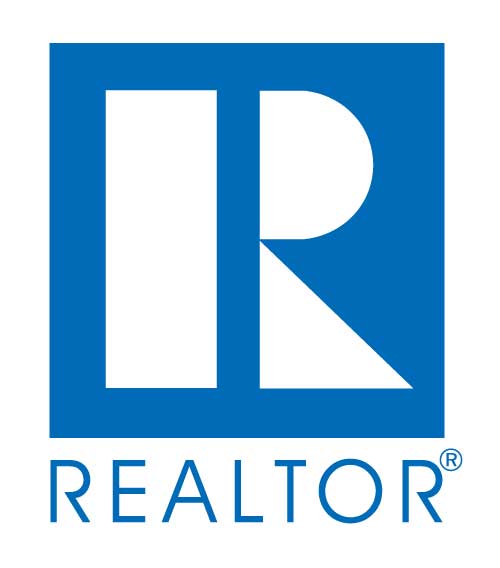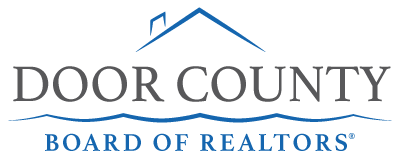
General Resources
Real Estate Tips
Mortgage Calculator

Why use a REALTOR®?
See the 179 ways a REALTOR® is worth their compensation.
Homebuyers:
How the recent settlement agreements have changed your home buying process.
Home Sellers:
Using a REALTOR® as your trusted source of information and advice in your home selling process gives you their expertise and access to attract buyers to your home.
Consumers:
Please note to access more information on the class action law suit. Click or or call the settlement administrator at 888-995-0207
Consumer Guides
Overcoming Barriers to Homeownership
Buying a home is a major financial decision. Whether you're saving for a down payment, managing debt, or dealing with other barriers to entry, agents who are REALTORS® can help you find your dream home. Check out this video and this article to see how REALTORS® help...
Understanding and Protecting Yourself from Title Fraud
Title fraud is a serious crime that can be overlooked and result in a property owner unknowingly losing the title of their property. Here's what you need to know about title fraud, how it happens, who's most at risk, and how you can prevent it from happening to you....
Buying Land and Building a New Home
When looking to purchase property, buyers may consider purchasing a plot of land or a new construction project instead of an existing home. Here's what prospective buyers should know: Why might I want to build my own home? Every homebuyer's needs are different. Some...
Seller Disclosures
When selling a home, sellers must disclose certain characteristics of the property to potential buyers. An agent who is a REALTOR® can help you understand why and what you need to disclose, but here are the basics: What are seller disclosures? Seller disclosures are...
Property Taxes
Wherever you buy a home in the United States, property taxes are a reality of homeownership. An agent who is a REALTOR® can help connect you with a tax expert in your area, but here are the basics: What are property taxes? Property taxes are charges on your land and...
Preparing for Homeownership
Whether you are a first-time buyer or planning your next move, you should consider many factors as you prepare for the home purchase process. Here's what prospective buyers should know: How should I begin to think about what kind of home suits my needs? Before...
Navigating Multiple Offers
When your home is on the market, you may receive offers from multiple interested buyers. Offers can vary greatly, and you will need to determine which one is best for you. Here's what sellers should know: How can offers differ? While the price of an offer is a key...
Marketing Your Home
Once you decide to sell your home, your agent will work with you to determine the best strategy to reach potential buyers and attract strong offers. Here are some considerations when marketing your home: What does it mean to market my home? Marketing your home refers...
Homeowners Associations
In many housing markets, homeowners associations (HOAs) and other community associations can be a part of the homebuying (and owning) experience. Here's what prospective buyers should know: What are HOAs? HOAs are organizations in residential communities that create...
Deeds and Titles
Closing day is an exciting milestone for buyers and sellers alike. To complete the process of a home sale, a property's ownership rights are formally transferred from the seller to the buyer. Here's what you should know about deeds and titles: What is a deed? A deed...
Alternative Listing Options
NAR's new MLS policy is being implemented across the country through September 30, 2025. Please note that delayed marketing exempt listings may not be available in all markets until that date. Home sellers looking to market their homes may have different preferences...
REALTORS® Duty to Put Client Interests Above Their Own
A REALTOR® is a special kind of real estate agent: one who follows NAR’s strict Code of Ethics, including the first and primary pledge to protect and promote the interests of their clients. This obligation means that a REALTOR® cannot make decisions or provide...
Open Houses and Written Agreements
As of August 17, 2024, many real estate professionals nationwide will be asking buyers to enter into a written agreement prior to touring a home. But what if you are just attending an open house? Here’s what you should know: I am attending an open house without an...
What Veterans Need to Know About Buying a Home
The National Association of REALTORS® is proud to support those who serve our country on their journey to achieve the American Dream of homeownership. Veterans and active servicemembers often have unique needs when looking for a home, and agents who are REALTORS® are...
Why am I Being Asked to Sign a Written Buyer Agreement?
If you’re a homebuyer working with an agent who is a REALTOR®, it means you are working with a professional who is ethically obligated to act in your best interest. As of August 17, 2024, you will be asked to sign a written buyer agreement after you’ve chosen the...
Offers of Compensation
As a home seller, you have a wide range of choices when deciding how to market your property. This includes whether you’d like to offer—or authorize your agent to offer—compensation to a buyer’s agent as a way to attract potential buyers. Here’s what you need to know...
Negotiating Written Buyer Agreements
You’ve decided it’s time to buy a home and want to work with an agent to guide you through the process. The next step is to interview agents and negotiate a written agreement that includes the services the agent will provide and the compensation they will receive....
Seller Concessions
As a home seller, you have choices when deciding how to market your property, including whether you’d like to offer concessions to attract buyers or close a deal. Here’s what you need to know as you consider whether this approach is right for you: What are seller...
Multiple Listing Services (MLSs)
When buying or selling a home, your real estate professional may use a Multiple Listing Service (MLS) to find homes for sale or market your property. Here is what you need to know: What is an MLS? MLSs provide online platforms that compile home listings from...
Fair Housing
Buying or selling a home is more than a transaction—it’s fundamental to your long-term goals and financial future. Consumers and agents all have rights and responsibilities to promote a home buying or selling process free from discrimination. Here’s what you need to...
Listing Agreements
If you choose to work with a real estate professional to sell your home, one of the first things you’ll do is negotiate and sign a listing agreement with the agent you’ve selected. Here’s what you need to know: What is a listing agreement? A listing agreement is a...
10 Questions to Ask a Seller’s Agent
If you’re ready to sell your home, you should feel empowered to find and work with the agent who is the best fit for your needs. Here are ten questions you should consider when selecting an agent: Are you a REALTOR®? When you work with an agent who is a REALTOR®,...
10 Questions to Ask a Buyer’s Agent
If you’re ready to buy a home, you should feel empowered to find and work with the agent who is the best fit for your needs. Here are ten questions you should consider when selecting an agent: Are you a REALTOR®? When you work with an agent who is a REALTOR®, you...
Buying Your First Home
So, you’re ready to find your first home. But where do you begin? And what resources are available to help you? Here’s what you need to know as you embark on your homeownership journey: Who is considered a first-time homebuyer? The definition of “first-time...
Mortgages and Financing
Buying a home is one of the largest personal and financial decisions you can make. For many buyers, the process includes finding a loan that will help you pay for your new home over time. An agent who is a REALTOR® can help you learn about your options. Here’s what...
Steps Between Signing and Closing on a Home
Once you sign a purchase agreement on your new home, there are still several steps to complete before you can finalize—or “close”—the transaction. While the process differs in each state, here are the basics of what you can expect during the period between signing and...
Agency and Non-agency Relationships
When you are looking to buy or sell a home, you may hear about different types of relationships—agency and non-agency—that exist between buyers and sellers and the real estate professionals they are working with. These relationships are defined by state law and the...
The Appraisal Process
If you are financing your home purchase, you will likely be required to get a home appraisal as one of the steps between signing and close. Here’s what you should know: What is an appraisal? An appraisal is an opinion on a home’s market value that helps a lender...
Home Inspections
Between signing and close, a homebuyer may choose to have a new home inspected to make sure it is in good condition and safe for a new owner. Here’s what buyers and sellers should know: What is a home inspection? A home inspection is an assessment of a home’s...
Escrow and Earnest Money
One of the steps between signing and closing on a home is when homebuyers typically deposit money into an escrow account. An agent who is a REALTOR® can help advise you on your offer and how to keep your deposits safe. When it comes to escrow, here’s what homebuyers...
Fire Damage and Policy Coverage
Most homeowners insurance policies cover fire and smoke damage, but some insurers may limit or not offer coverage if your risk is higher. You should contact an insurance agent or broker if you need separate fire insurance or have questions. An agent who is a REALTOR®...
Flood Insurance
Flooding is the most common and costly natural disaster in the United States. Even a few inches of water can cause devastating damage. A licensed insurance agent can advise you on purchasing the right flood insurance to protect your assets. Here’s what you need to...
Homeowner’s Insurance
Understanding homeowners insurance is essential for anyone looking to purchase a home. Start looking at policies early and ask an agent who is a REALTOR® to connect you with a licensed insurance agent for assistance. A detailed industry overview of available coverage...
Preparing to Sell Your Home
Once you decide to sell your home, you might have questions about how to prepare it for listing and viewing by potential buyers. An agent who is a REALTOR® can guide you through this process. Here are some common considerations as you prepare your home to sell: How...
What Goes Into Pricing Your Home
As a home seller, one of the most important questions to ask your agent is how to determine your home’s listing, or asking, price. Here is what sellers should know about home pricing: What characteristics of my home will my agent evaluate? Agents will consider many...
Ethics and Complaints
WRA Professional Standards Resources
Ethics Complaints, Arbitration Requests and Related Information
Code of Ethics
National Association of REALTORS
Ombudsmen Process FAQ
The ombudsman process usually involves parties who have not filed an ethics complaint or arbitration request, but have experienced a breakdown in communication requiring informal resolution (although an ombudsman may also be used where a complaint has been filed). Often the ombudsman functions as an intermediary who communicates the concerns of one party to the other over the phone, so a positive relationship can be restored.
This service is offered by the Door County Board of REALTORS – to get more information or request the service please contact the DCBR at 920-743-9651 or dcbr@att.net
